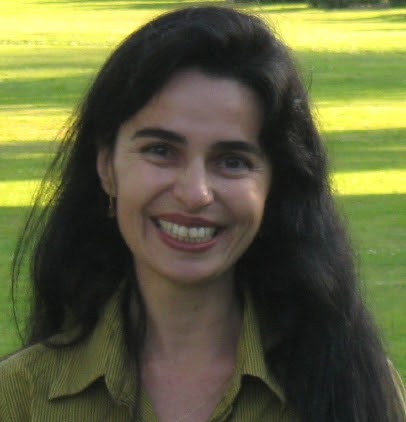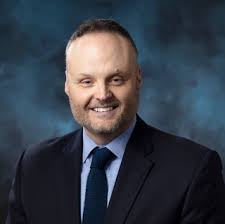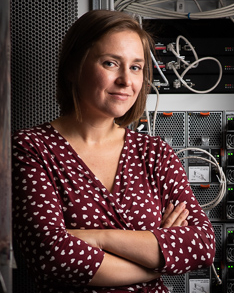Below are details about the keynotes.
Friday, October 20th — 11:00
Room: Theather
Abstract: Biological sequence comparison is an important problem in Bioinformatics and its goal is to define how similar the sequences are, producing a score, and highlighting their similarities, producing an alignment. There are many ways to compare biological sequences and all of them require high performance computing solutions, when the optimal solution is needed. In this talk, we will deal with three types of sequence comparison. First, we discuss pairwise sequence comparison, which is often solved with dynamic programming using variants of the Smith-Waterman algorithm, producing the optimal solution with time complexity O(n^2), where n is the length of the sequences. We present our MASA tools, which can be used in CPU or GPU to pairwise compare long DNA sequences. The last version of MASA for GPUs (MASA-CUDAlign-MultiBP) attained the best performance in the literature in 2021. Then, we examine the structural RNA alignment problem, that is also solved with dynamic programming, using the Sankoff algorithm, with time complexity O(n^6). We present our CUDA-Sankoff tool and show that it has very good speedups. Next, we discuss the multiple sequence alignment (MSA) problem, which is proven NP-Complete. We present our PA-Star CPU-based tool, which executes a variant of the A-Star algorithm to compute the optimal MSA. We show that PA-Star is able to compare multiple sequences in reduced time, when compared to the literature. At the end of the talk, we will do a covid-19 case study, showing how our three tools are used to compare SARS-CoV-2 sequences.

Alba Cristina Magalhaes Alves de Melo obtained her PhD in Computer Science from the Institut National Polytechnique de Grenoble (INPG), France, in 1996. Since 1997, she works at the Department of Computer Science at the University of Brasilia, Brazil, where she is Full Professor. Prof. Melo is IEEE Senior Member, Latin America Coordinator of the IEEE Technical Community of Parallel Processing (TCPP), Member of the BRICS (Brazil, Russia, India, China and South Africa) Working Group on High Performance Computing, Brazilian CNPq Researcher level 1C and Member of the Council of the Brazilian Computer Society. Prof. Melo is Associate Editor of many prestigious journals such as IEEE Transactions on Computers, Journal of Parallel and Distributed Computing and Future Generation Computer Systems. She has also served as Program Committee Member in many prestigious conferences such as IPDPS, Supercomputing, ICPP, ICS, Euro-Par, CCGrid, Cluster, ISC, SBAC-PAD and HiPC. Her research interests are high performance computing, bioinformatics and cloud computing.
Thursday, October 19th — 11:00
Room: Theather
Abstract: The first exascale computer, called Frontier, has been delivered to Oak Ridge National Laboratory this past year. This unique scientific instrument is the culmination of more than a decade of concerted effort. I will relate a bit of the history of hybrid-node computing at the Oak Ridge Leadership Computing Facility (OLCF) and how Frontier represents the latest iteration of that approach. Some details of Frontier’s architecture will be discussed, including an overview of the new AMD GPUs that provide the bulk of the computational power for Frontier. Finally, we will take a look at some problems that will benefit from the increased capability at exascale and I will convey some lesson learned from trying to get the applications attacking these problems running on this machine.

Bronson Messer Bronson Messer is a Distinguished Scientist and Director of Science at the Oak Ridge Leadership Computing Facility (OLCF) at ORNL. Messer has been developing code for, helping to design, and developing useful requirements for some of the world’s largest supercomputers for more than two decades. He is also a Joint Faculty Associate Professor in the Department of Physics & Astronomy at the University of Tennessee. His primary research interests are related to the explosion mechanisms and phenomenology of supernovae (both thermonuclear and core-collapse), especially neutrino transport and signatures, dense matter physics, and the details of turbulent nuclear combustion.
Wednesday, October 18th — 11:00
Room: Theather
Abstract: Real life applications can be executed on devices that range in size from smartphones to warehouse size data centers. Meanwhile, architectures are becoming heterogeneous including various accelerators and even non von Neumann computers into the computational continuum. In this talk we discuss challenges when benchmarking different types of applications on a hybrid computational continuum. First, we present the methods for decomposition and execution of HPC applications on hybrid Classic/Quantum systems. Second, we discuss the benefits but also problems and challenges when executing applications of hybrid systems. Third, we revisit the current state of the art testbeds for the execution and benchmarking of hybrid classic/quantum.

Ivona Brandić is University Professor for High Performance Computing Systems at the Institute of Information Systems Engineering, Vienna University of Technology (TU Wien) where she leads the High Performance Computing Systems Research Group. In 2015 she was awarded the FWF START prize, the highest Austrian award for early career researchers. Since 2016 she has been a member of the Young Academy of the Austrian Academy of Sciences. She received her PhD degree in 2007 and her venia docendi for practical computer science in 2013, both from Vienna University of Technology. From 2009 to 2012 she led the Austrian national FoSII (Foundations of Self-governing ICT Infrastructures) project funded by the Vienna Science and Technology Fund (WWTF). She was a management committee member of the European Commission's COST Action on Energy Efficient Large Scale Distributed Systems and of the COST Action on Sustainable Ultrascale Computing (NESUS). I. Brandic was on the Editorial Board of IEEE Magazine on Cloud Computing, IEEE TPDS and IEEE TCC. In 2011 she received the Distinguished Young Scientist Award from the Vienna University of Technology for her project on the Holistic Energy Efficient Hybrid Clouds. Her interests comprise virtualized HPC systems, energy efficient ultra-scale distributed systems, massive-scale data analytics, Cloud \& workflow Quality of Service (QoS), and service-oriented distributed systems. She published more than 50 scientific journal, magazine and conference publications and she co-authored a text-book on federated and self-manageable Cloud infrastructures.